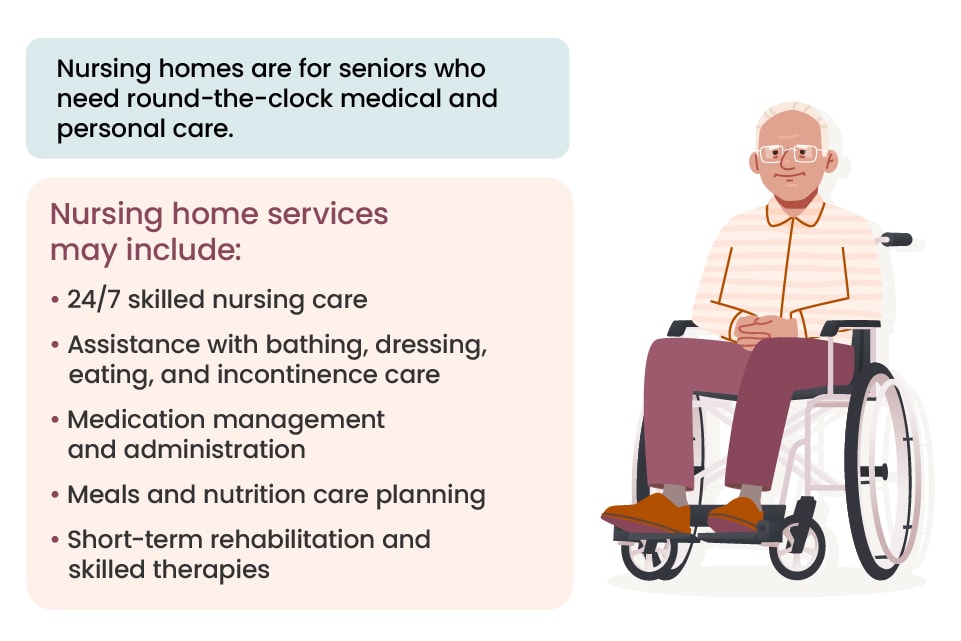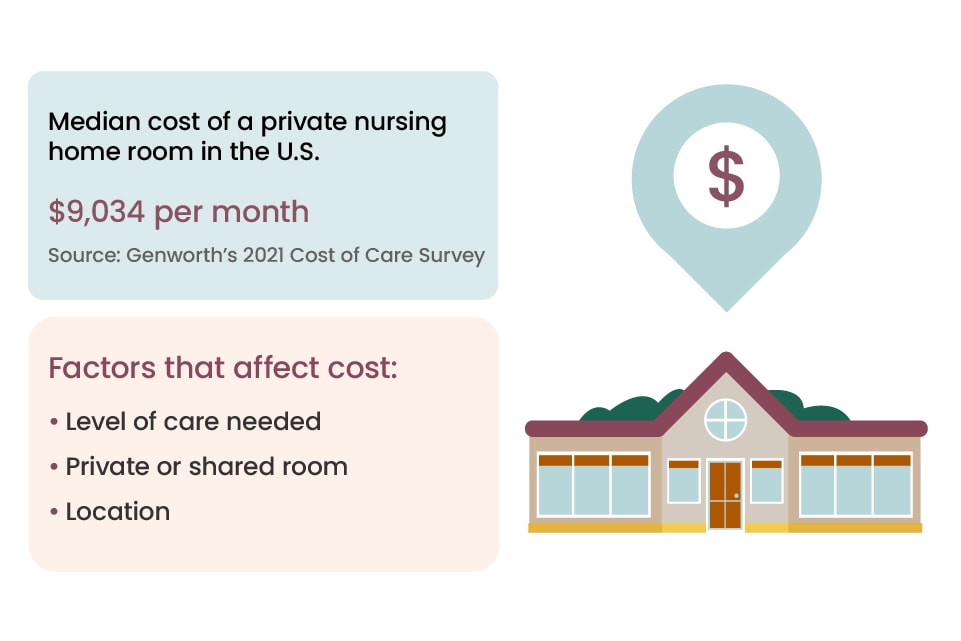About Senior Health
Explore senior health articlesAbout Senior Care Options
Explore senior living articlesAbout Finances & Legal
Explore finances and legal articlesAbout Products for Seniors
Explore products for seniorsAbout Senior Health
Explore senior health articlesAbout Senior Care Options
Explore senior living articlesAbout Finances & Legal
Explore finances and legal articlesAbout Products for Seniors
Explore products for seniors

Many people use the phrase “nursing home” to describe any type of senior living. However, today’s senior care services are more nuanced and can vary drastically. Some types of senior living communities simply offer 55+ housing and activities, while others provide advanced and specialized medical care.
A nursing home refers to a medical facility designed to provide high levels of long-term skilled medical and personal care. Read on to learn when it’s time to move a loved one into a nursing home, what services and benefits nursing homes offer, and how to cover the costs of nursing home care.
Our free tool provides options, advice, and next steps based on your unique situation.


Our free tool provides options, advice, and next steps based on your unique situation.

Our advisors help 300,000 families each year find the right senior care for their loved ones.

Genworth. (2021). Cost of care survey.
The information contained in this article is for informational purposes only and is not intended to constitute medical, legal or financial advice or create a professional relationship between A Place for Mom (of which OurParents is a trademark) and the reader. Always seek the advice of your health care provider, attorney or financial advisor with respect to any particular matter and do not act or refrain from acting on the basis of anything you have read on this site. Links to third-party websites are only for the convenience of the reader; A Place for Mom does not recommend or endorse the contents of the third-party sites.